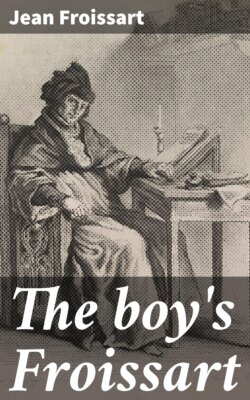Читать книгу The boy's Froissart - Froissart Jean - Страница 18
На сайте Литреса книга снята с продажи.
CHAPTER XIV.
Of the Manners of the Scots, and how they carry on War.
ОглавлениеTable of Contents
THE Scots are bold, hardy, and much inured to war. When they make their invasions into England, they march from twenty to four and twenty miles without halting, as well by night as day; for they are all on horseback, except the camp-followers, who are on foot. The knights and esquires are well mounted on large bay horses, the common people on little galloways. They bring no carriages with them, on account of the mountains they have to pass in Northumberland; neither do they carry with them any provisions of bread or wine; for their habits of sobriety are such, in time of war, that they will live for a long time on flesh half sodden, without bread, and drink the river-water without wine. They have, therefore, no occasion for pots or pans: for they dress the flesh of their cattle in the skins, after they have taken them off; and, being sure to find plenty of them in the country which they invade, they carry none with them. Under the flaps of his saddle, each man carries a broad plate of metal; behind the saddle, a little bag of oatmeal: when they have eaten too much of the sodden flesh, and their stomach appears weak and empty, they place this plate over the fire, mix with water their oatmeal, and, when the plate is heated, they put a little of the paste upon it, and make a thin cake, like a cracknel or biscuit, which they eat to warm their stomachs: it is therefore no wonder that they perform a longer day’s march than other soldiers. In this manner the Scots entered England, destroying and burning every thing as they passed. They seized more cattle than they knew what to do with. Their army consisted of four thousand men at arms, knights and esquires, well mounted; besides twenty thousand men, bold and hardy, armed after the manner of their country, and mounted upon little hackneys, that are never tied up or dressed, but turned, immediately after the day’s march, to pasture on the heath or in the fields. This army was commanded by two valiant captains. The King of Scotland himself, who had been very brave, yet being old, and laboring under a leprosy, appointed for one that gallant prince, so renowned in arms, the Earl of Moray, who bore upon his banner argent three pillows gules; the other was Sir James Douglas, esteemed the bravest and most enterprising knight in the two kingdoms: he bore for arms azure on a chef argent. These two lords were the greatest barons, and most renowned for their prowess and other feats of arms.
